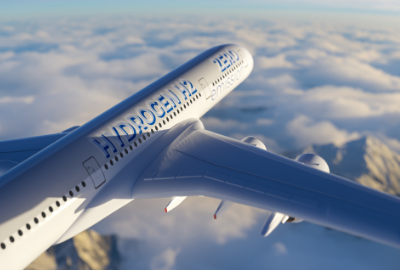World Economic Forum: hydrogen-powered mid- and long-range flights in 2035
By 2035, hydrogen fuel cells can be used to electrify mid-range flights and hydrogen combustion aircraft can be used on long-haul flights. This is one of the key takeaways of a new World Economic Forum report on the future of aviation.
During the recently held Farnborough International Airshow, the World Economic Forum’s Target True Zero initiative released its first report, ‘Unlocking Sustainable Battery and Hydrogen-Powered Flight’. This report sets out the role new propulsion technologies utilising battery or hydrogen power can play in contributing to the industry’s decarbonisation efforts.

The report, a co-production by the World Economic Forum and University of Cambridge’s Aviation Impact Accelerator, explores how aviation can achieve a true zero climate impact.
Industry leaders are optimistic about how alternative propulsion technology, particularly hydrogen, could address aviation's climate impact in the future.
The report finds that by 2035 three promising types of alternative propulsion aircraft could offer viable alternatives to conventional carbon emitting aircraft. Fully battery electric aircraft could enable completely emission free flight over the shortest distances. Hydrogen, meanwhile, could be used to electrify aircraft with fuel cells over mid-range distances, or through direct combustion. The latter could be applied to any aircraft operating any distances flown today.


